Champions of Change Blog
Never Stop Giving Back
Posted by on July 27, 2012 at 10:40 AM EDT
Over the course of my life I have seen many catastrophic events happen to good people: natural disasters, war, and poverty. I have witnessed a colossal amount of disappointment from the people of my village because they had nothing. Thirty years ago I left my village of Intipuca, El Salvador, during a time of war. I was one of the lucky few who were able to survive and leave to achieve my American dream.
Unfortunately there was a sacrifice which needed to be made. It meant that I must leave my family and everything that I had ever known and loved behind. I was on my own, going to a new country, determined to revisit El Salvador with the opportunity to make a difference in people’s lives.
Upon arriving to America I became an entrepreneur and owned two restaurants. These two restaurants are what put me back on my feet after many years of hard work. They allowed me to have my ideas for helping people in the United States and abroad interact and become a reality.
Learn more about ServiceInventing a Sustainable Future for Latin America
Posted by on July 27, 2012 at 10:39 AM EDT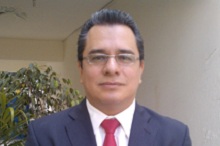
The future has always been far away. Ever since I was a child, I remember thinking about the future as a very distant event. I remember thinking that the future would be different and, in one word, better than whatever the present was for me back then.
Today, I realize I live in the future, just not the future I wanted for my family, my children and the people I care about. I realize the future I live in is a future I contributed to create mostly by not doing much about it.
Granted, the world we live in has been marred by a series of unfortunate events, some caused by us, some not. In the last ten years alone we’ve had perhaps the worst financial crisis the world has seen in 80 years, as well as a series of crises relating to the lack of or uneven distribution of natural resources, including water, food and oil. And most recently, climate change. The problem is not necessarily the amount of damage caused by these crises, but rather the long term, and even irreversible, effects they could have.
The financial crisis of 2008 served as a wakeup call for the entire planet. The effects of the crisis were felt all over the world, especially in developing countries. It was a moment in which we had to decide whether to pursue the same goals that had brought us to this point, or to change the ways we think about the economy, the environment, technology and society. That is, we were at a cross roads where we needed to decide what kind of future we wanted for ourselves, our children and the entire world.
Learn more about Energy and EnvironmentShared Responsibility, Shared Destiny: The MALI Experiment
Posted by on July 27, 2012 at 10:32 AM EDT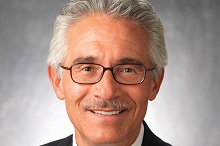
A couple of years ago, a small group of Mexican Americans began talking about whether our community’s leadership could help bring American and Mexican societies closer together, to jointly address some of the challenges that affect us both – and most of all to help strengthen civil society in Mexico.
We needed to answer some basic questions. Would well-integrated, primarily U.S.-born Mexican American leaders use their growing influence to help mobilize resources and forge the links needed to effectively help community-based projects and organizations in Mexico? Are there committed leaders and organizations across the border to partner with? Could a mechanism be fashioned to bring the two together?
I had my doubts, until a trip to the border city of Ciudad Juárez showed me what could be done and was already going on. Having grown up just across the river in El Paso, I was familiar with Juárez but had been away for decades. I saw for myself how committed citizens and robust community organizations are working tirelessly and courageously to save Juárez and its at-risk youth.
Learn more about Immigration, Additional IssuesCultivating the Caribbean American Community
Posted by on July 27, 2012 at 10:20 AM EDT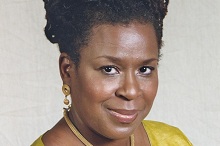 It has been seven years since the official recognition by the US Congress and the White House of June as National Caribbean American Heritage Month (NCAHM), chalking up another milestone in Caribbean American History. Caribbean people have been coming here for a long time. Caribbean immigrants have been a part of America’s intelligentsia and intellectual tradition -- John Russworm, a Jamaican, started the first black newspaper, and the Harlem Renaissance can count among its leaders many of Caribbean ancestry, such as J.A. Rogers, Claude McKay, and Marcus Garvey. The history and the destinies of the Caribbean and the USA are inextricably linked.
It has been seven years since the official recognition by the US Congress and the White House of June as National Caribbean American Heritage Month (NCAHM), chalking up another milestone in Caribbean American History. Caribbean people have been coming here for a long time. Caribbean immigrants have been a part of America’s intelligentsia and intellectual tradition -- John Russworm, a Jamaican, started the first black newspaper, and the Harlem Renaissance can count among its leaders many of Caribbean ancestry, such as J.A. Rogers, Claude McKay, and Marcus Garvey. The history and the destinies of the Caribbean and the USA are inextricably linked.When I started the Institute of Caribbean Studies (ICS), almost twenty years ago, I envisioned ICS as a space for the Caribbean diaspora to engage in the practice of citizen advocacy that is the culture of the American democratic tradition; to advance our interests, for I believed then and now that a better world is possible. I thought it vital that Caribbean Americans become stakeholders in the US/Caribbean dialogue, and in the Caribbean development discourse. Back then, it was not the norm for a young immigrant woman with no money to stake out a claim in the Washington, D.C. intelligentsia. ICS started by operating with solely the talent, time and treasure of an all-volunteer cast, and a skeleton budget, and I must admit that at times I have questioned my own sanity. But always, there is still small voice saying, “If not now, when? If not you, who?” And so, along with the few committed, I persist.
Learn more about ImmigrationToward an Eternal Spring for Women’s Rights
Posted by on July 27, 2012 at 10:09 AM EDT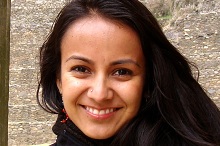
Guatemala is known as the country of eternal spring, unfortunately women’s rights have yet to blossom. Laws against violence toward women have passed and mechanisms to prevent this violence are in place, due to the work of women organizations, but the political willingness for sustainable change and development for women has lagged as evidenced by the recent setback in the laws. As a consequence, significant advancements for women that could result in greater protections from violence are yet to come.
In 2005 as I was finishing my undergraduate studies at Loyola Marymount University, my professor Jodi Finkel told me about a program on National Public Radio about the plight of a group of women sex workers in Guatemala City, Guatemala. One of the women interviewed, Susi, a 41-year-old mother of seven children, stated that her dream was to learn to read. Inspired by her story, I asked my dear friend, Tania, to move to Guatemala to start a literacy program in the City’s red light district, known as La Línea, to enable Susi—as well as all other women in her circumstances—to learn to read. In August of 2005, Tania and I moved to Guatemala.
Learn more about WomenUsing the Power of Arts as a Tool to Create Social Changes: From Conflict to Creativity
Posted by on July 27, 2012 at 9:57 AM EDT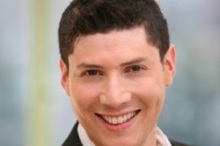
I am constantly amazed by the ability of the arts to focus the human heart in matters of importance. I am honored to be a White House Champion of Change, especially because I am living proof that foreign aid work accomplishes its goals at its core. At the age of twelve I was a beneficiary of an arts program for disadvantaged children founded by USAID in El Salvador, and since then I knew I wanted to help people in the same way I was being helped.
I believe that the arts are a powerful vehicle for communication, a way to express visions that are beyond the capacity of words, and a medium for cultural enlightenment. Knowledge of the arts is an indispensable foundation for enlightened citizenship in our increasingly complicated world. Art does not solve problems, but makes us aware of their existence. Arts education, on the other hand, does solve problems. Years of research show that it is closely linked to almost everything that we as a nation say we want for our children and demand from our schools - academic achievement, social and emotional development, civic engagement, and equitable opportunity.
Learn more about Additional Issues
- &lsaquo previous
- …
- 102
- 103
- 104
- 105
- 106
- 107
- 108
- 109
- 110
- …
- next &rsaquo
White House Blogs
- The White House Blog
- Middle Class Task Force
- Council of Economic Advisers
- Council on Environmental Quality
- Council on Women and Girls
- Office of Intergovernmental Affairs
- Office of Management and Budget
- Office of Public Engagement
- Office of Science & Tech Policy
- Office of Urban Affairs
- Open Government
- Faith and Neighborhood Partnerships
- Social Innovation and Civic Participation
- US Trade Representative
- Office National Drug Control Policy
categories
- AIDS Policy
- Alaska
- Blueprint for an America Built to Last
- Budget
- Civil Rights
- Defense
- Disabilities
- Economy
- Education
- Energy and Environment
- Equal Pay
- Ethics
- Faith Based
- Fiscal Responsibility
- Foreign Policy
- Grab Bag
- Health Care
- Homeland Security
- Immigration
- Innovation Fellows
- Inside the White House
- Middle Class Security
- Open Government
- Poverty
- Rural
- Seniors and Social Security
- Service
- Social Innovation
- State of the Union
- Taxes
- Technology
- Urban Policy
- Veterans
- Violence Prevention
- White House Internships
- Women
- Working Families
- Additional Issues

